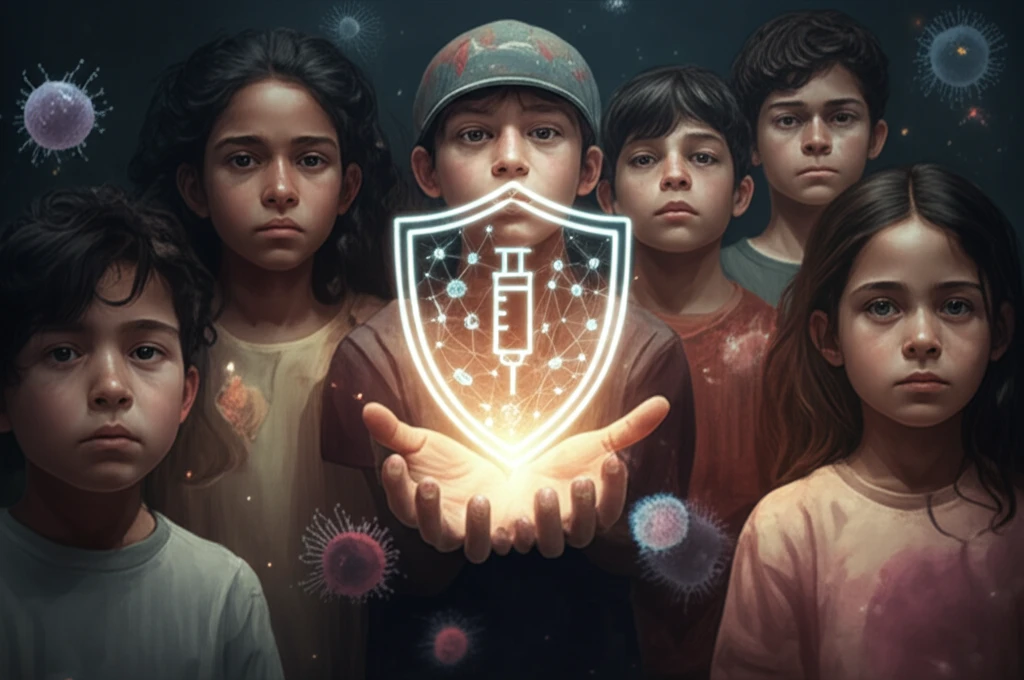
Vaccine Hesitancy: Why Some Parents Choose Not to Vaccinate and What We Can Do About It
"Understanding the concerns and challenges behind vaccine refusal, and exploring strategies to build confidence and protect public health."
For decades, vaccines have been a cornerstone of public health, credited with eradicating diseases like smallpox and significantly reducing the incidence of polio and measles. These achievements, once considered unimaginable, highlight the power of collective action in safeguarding community health. The development and widespread use of vaccines represent a triumph of modern medicine, offering protection against potentially devastating illnesses.
However, alongside these successes, a growing trend has emerged: vaccine hesitancy. This phenomenon, where individuals delay or refuse vaccination despite its availability, poses a significant threat to public health. Fueled by a complex interplay of factors, including misinformation, distrust of medical institutions, and personal beliefs, vaccine hesitancy challenges the very foundation of herd immunity.
This article explores the multifaceted issue of vaccine hesitancy, examining the reasons behind it, the potential consequences for individuals and communities, and strategies for addressing concerns and promoting informed decision-making. By understanding the roots of vaccine hesitancy, we can work towards building greater confidence in vaccines and ensuring the health and well-being of all.
Why Are Some Parents Hesitant About Vaccines?

Vaccine hesitancy is rarely a simple 'yes' or 'no' decision. Instead, it exists on a spectrum, influenced by a range of factors that vary from person to person. Understanding these factors is crucial for effective communication and building trust.
- Misinformation and Conspiracy Theories: The internet is rife with inaccurate and misleading information about vaccines, often presented as conspiracy theories. These claims can be difficult to debunk and may lead parents to distrust scientific evidence.
- Distrust of Medical Institutions: Some individuals have a general distrust of pharmaceutical companies, healthcare providers, or government agencies, leading them to question the safety and efficacy of vaccines.
- Religious or Philosophical Beliefs: Certain religious or philosophical beliefs may conflict with the practice of vaccination.
- Concerns about Side Effects: While vaccines are generally safe, they can cause mild side effects, such as fever or soreness at the injection site. Some parents worry about the potential for more serious adverse reactions, even though they are extremely rare.
- Lack of Knowledge or Understanding: Some parents may simply lack accurate information about vaccines and the diseases they prevent. This can be due to limited access to healthcare, language barriers, or low health literacy.
- Personal Experiences or Anecdotes: A negative personal experience or hearing anecdotal stories about vaccine-related harm can influence a parent's decision.
Moving Forward: Building Confidence and Protecting Public Health
Addressing vaccine hesitancy requires a multifaceted approach that emphasizes education, open communication, and building trust. By understanding the concerns of hesitant parents, providing accurate information, and fostering respectful dialogue, we can work towards increasing vaccine confidence and protecting the health of our communities. Vaccines remain one of the most powerful tools we have to prevent infectious diseases, and ensuring their widespread use is essential for a healthy future.
